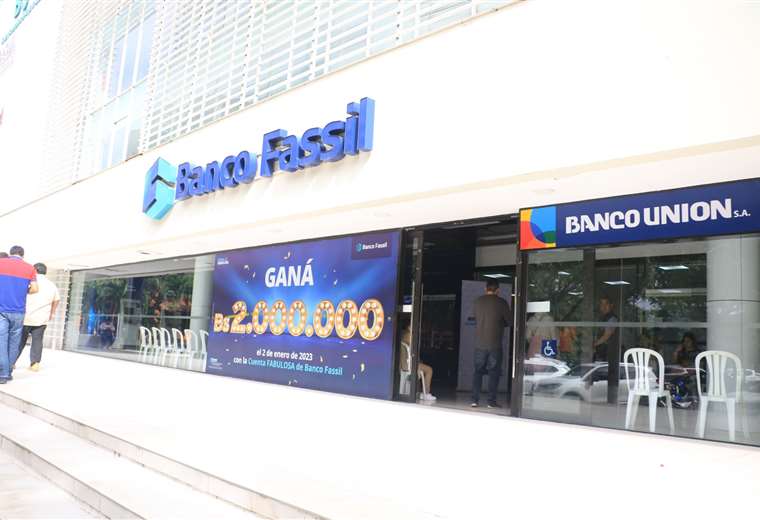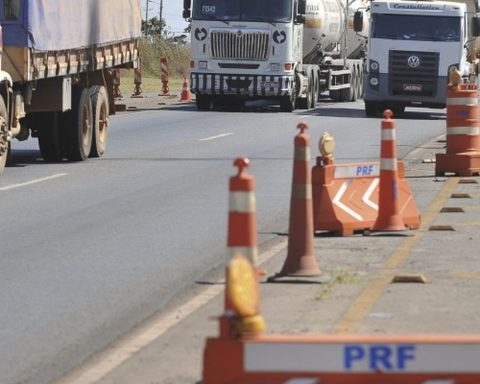May 23, 2023, 4:00 AM
May 23, 2023, 4:00 AM
In order to have sufficient financial ‘back’ and the necessary liquidity, the banks that will take over the assets and liabilities of the extinct Fassil Bankwill have the possibility of accessing liquidity credits offered by the Central Bank of Bolivia (BCB). In this sense, financial intermediation entities may lend, of the issuing entity, up to 100% of its legal reserve.
This is indicated by the Resolution of the Board of Directors (RD) of the BCB 075 of May 11, where Title IX Facilitation of Liquidity credits within the framework of solution procedures and article 45 details the maximum amounts of liquidity credits where it is indicated that the financial entities that participate in this solution process, carried out by the Financial System Supervisory Authority (ASFI), they will be able to access these loans “in national currency up to an amount equivalent to the 100% of its legal reserve required in cash in national currency on the day of application. For this purpose, the required legal reserve in cash, will be calculated with the information of the obligations subject to reserve corresponding to eight previous days”.
In this regard, the economist, Germán Molina, indicated that this change in the legal reserve regulation for financial intermediation entities, it is a sign that the obligations, especially those referring to deposits, of the former Fassil Bank they are very big so “the BCB With this type of credit, it seeks to provide certainty and guarantee that there will be no excuses for not complying with the former clients of the intervened entity”.
Molina believes that the possibility of accessing a 100% loan equivalent to legal reserve of the banks that are part of the solution process is a positive sign for the savers of the former Fassil, but also a responsibility that will test the repayment capacity of the banks that access this money, of these resources.
In this sense, article 47 (Payments) of RD 075 indicates that they may make a partial or total refund of the credit granted in advance. “He BCB At the end of each month, the amount corresponding to the credit interest”.
For Roger Mario López, economic analyst and professor of Economics at UPSA, what the BCB It is correct and accurate, since it is part of its raison d’être as a “lender of last resort”. That is, the banks never have 100% of the public’s deposits in the vaults of the agencies and ATMs, but a large part of them is lent.
“In the face of a situation like this, which is part of the solution procedure, he BCB lend money to solvent banks so as not to interrupt the payment system and generate illiquidity problems. In this way, the banks can immediately have resources to return the savers of the Fassil bank in intervention without generating greater stress in the system”, explained López.
What would happen if the BCB does not grant those resources? The Economics teacher was consulted, who specified that if this figure occurred, the banks would go to the market to obtain the resources, raising the interest rates of the system (also of the credits with variable rate).
“If they can’t get the funds in the market, they could generate a panic situation and stress (queues, messages and audios on WhatsApp) accusing banks of not having money. This is what these credits try to avoid”, remarked López.
Precisely the approval of RD 075 is in tune, with which on April 26, 2023, reported the Minister of Economy and Public Finance, Marcelo Montenegro, who indicated that the deposit portfolio of the intervened Banco Fassil amounted to $us 2,700 million and that these are guaranteed.
“We want to call for calm and for everyone to remain calm in relation to the intervention process of the Fassil Bank“, Montenegro said at that time in a press conference and recalled that Law 393 guarantees the resources of savers in cases like these and gave an example, the process that was followed with Mutual La Paz, also intervened in May 2022.
After the entry into force of RD 075 and 078, on May 11 and 12, 2023, respectively, the issuing entity explained that they were approved in compliance with Article 532 of the Law 393 of Financial Services that establishes that: “For provide acquiring entities, within solution processes, the absorption of the impact of the acquisition of assets and the assumption of liabilities…; likewise the Central Bank of Bolivia – BCB will be able to make its legal reserve policy more flexible and will facilitate liquidity windows with respect to these entities.”
Thus, this exceptional mechanism has the purpose of supporting solution procedures in addition to mitigate risks associates, providing entities with the necessary liquidity to protect financial stability and strengthening public confidence in the system, pointed out from the BCB.
In time to clarify that these liquidity credits are not related to the regulations applied to the requests made by Banco Fassil SA before its intervention, “which were evaluated within the framework of Article 36 of Law 1670 of the BCB”.
On the subject, the senator for Alianza Creemos, Erik Morón, regretted that despite the fact that he carried out the investigation and inspection at the time on the irregularities that he presented Fassil Bank so many people who had a relationship with this bank had to be affected and he emphasized that the priority must be to solve the problems of these savers.
The legislator indicated that he hopes that the large number of people affected by the extinction of Fassil Bank can recover their money through the banks that assumed the different portfolios of this entity and that now have this responsibility with the savers.
Morón indicated that they cannot be done value judgments or “point the finger at some families that may or may not have benefited” and that are the investigations based on the ASFI with the financial investigations unit, which must really determine which are the business groups that have lent themselves to “this dynamic or this irregular game” that had this financial entity.
The former general manager of the extinct Fassil Bank stayed apprehended after declaring eight hours.
The prosecutor assigned to the case, Julio César Porras, said that his arrest was determined because there is flight risk and hindering the process that follows.
Patricia PSB, former manager of the entity intervened by the ASFI, was apprehended after eight hours of declaring at the offices of the Special Force to Fight Crime (Felcc).
This situation is part of an investigation into the delivery of eight credits for large sums of money without meeting the requirements of the regulations in force.
Porras indicated that PSB will be indicted for financial crimes, after she recognized that the signatures that appear on various documents are hers.
“She was serving as the top general manager. She was the head of the operational part, which is why the commission decided to apprehend this person. She recognized that there signed folders knowing that those amounts had passed the regulations,” Porras said.
who reported that summoned to testify as a witness to five other former officials, who held the positions of director, manager or assistant manager.
















